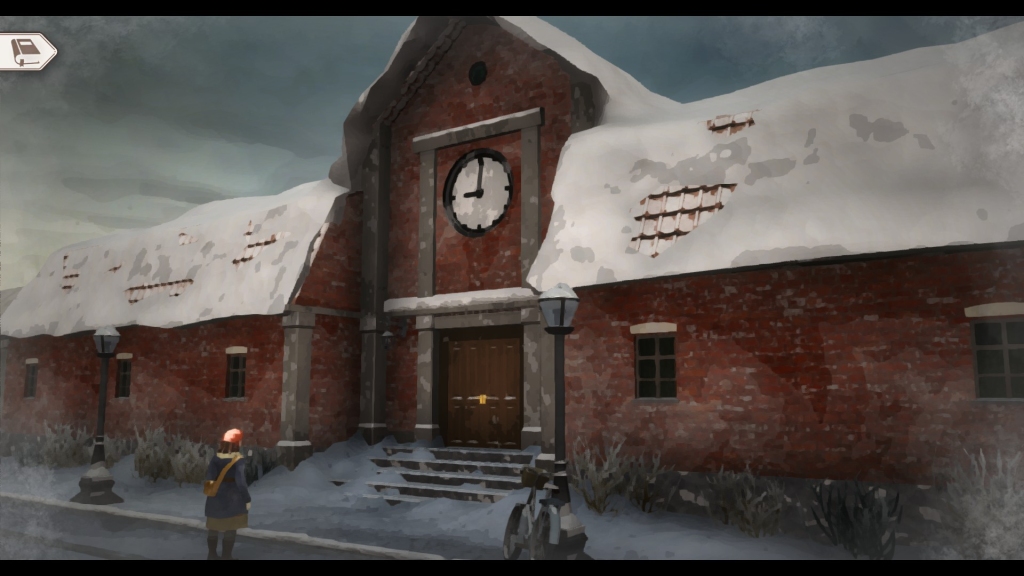Set in Denmark during the Nazi occupation, Gerda: A Flame in Winter tells the story of our titular protagonist Gerda, who is half-Danish and half-German. The perfect setting for a great RPG, but does it match the expectations?
Gameplay-wise, Gerda: A Flame in Winter is way more intricate than it would be expected from a game like this. Even if one decides to play this game knowing that it is an RPG, one can still be surprised by how smart and detailed it is. Every single interaction means something in the grand scheme of things, and it rarely ever feels out of place.
There are a few stats that the player has to keep track of Compassion, Insight, and Wits. But there are also a few stats that the player “feeds” into the personality of Gerda, like Dane, German, Occupation, and Resistance. The Trust system keeps these personality stats in balance. For instance, if Gerda gets close to Nazi soldiers and establishes a “Trust” bond with them, Occupation goes up. If Gerda stands up for herself, Resistance goes up. This system of establishing trust with others sometimes comes at the cost of someone; for instance, you might have to choose between two people you love. In times like these, your trust with one person goes up while it goes down with the other one.
There is also a “Mental Energies” system: The stats of Compassion, Wit, and Insight work as points that you can spend in your interactions. If your Compassion is up, for instance, you might be able to help someone; thus, your Trust in them goes up.

Every small interaction plays a role in how the story is shaped. This way, it truly feels like an RPG that came from a studio who knew what they were doing. Though the developing studio PortaPlay Games is not very well known, the publisher is another story. Indeed, the publisher of this game; Don’t Nod has released something we have all heard and praised before: Life is Strange! Gerda: A Flame in Winter was published by the hands of Don’t Nod Studios, a French video game developer team who also made other praised RPGs such as Vampyr and Tell Me Why. Thus, we can say that it is not a surprise that Gerda is also such an immersive RPG.
But the gameplay is not the first thing you notice about this game. How about the art, for instance? The art style of Gerda: A Flame in Winter is, in a word, incredible! Most of us have a sweet spot for the watercolor art style, and this game also uses this style to enhance the emotions of the story. With its background and foreground details, the art direction has done a very well job.
We are familiar with stories that take place during World War II and tell the story of an individual torn between their two loyalties, and they are always interesting. Gerda: A Flame in Winter is also like that- As someone who is half German and half Danish, Gerda does not know where her loyalties are, and it is your job to establish that relationship. It tells a small but complicated story, one where you, as a nurse, have to decide whether or not to help a wounded Nazi soldier. On the one hand, this is a Nazi soldier, and we do not really have to describe why being a Nazi is bad in the first place. But on the other hand, you are a devoted nurse, so how is refusing to help someone going to affect you as a person?

These conflicts make Gerda: A Flame in Winter interesting indeed, but the story is nothing new. It is mostly predictable to the point where I knew what to trade with what because I guessed where the story was leading towards. The RPG system and the internal conflict of loyalties make this game a story worth hearing, but the progression of the aforementioned story is easy to guess, and this might ruin the fun for you.
Though the art design of Gerda: A Flame in Winter is excellent, the sound design was not my cup of tea. There could be many people who like it, but all the different background tracks that transition from one to another so abruptly can also make it an unpleasant experience for many as well. There is also little to no voice acting because no one speaks at all. We can generally only hear Gerda when she writes in her notebook about the actions of the day and comments on them (which increases her Mental Energies). This little voice acting could definitely be done better. It could be done in a way that her speech does not feel like someone is reading from a notebook; it could be more naturally done. But the context here is that she is writing. Thus, it might only be expected for the voice actor to read it as such. So this is only my subjective view: it is not that good and could be done better.

Overall, Gerda: A Flame in Winter is a brilliantly done RPG. In the art department, it is insanely good, but the sound design could be done in a way that immerses the players a lot more than it does in its current state. The RPG system is nothing new, but it is very nuanced and immersive. Many aspects of the story, like the internal conflicts, make it interesting. It is predictable, sure, but it is really good, and isn’t that all that matters?
Stay tuned to GamesCreed for more game reviews and the latest news.















